What Trump Forgot: Reverence, Empathy, Leadership, Education and Philanthropy etc
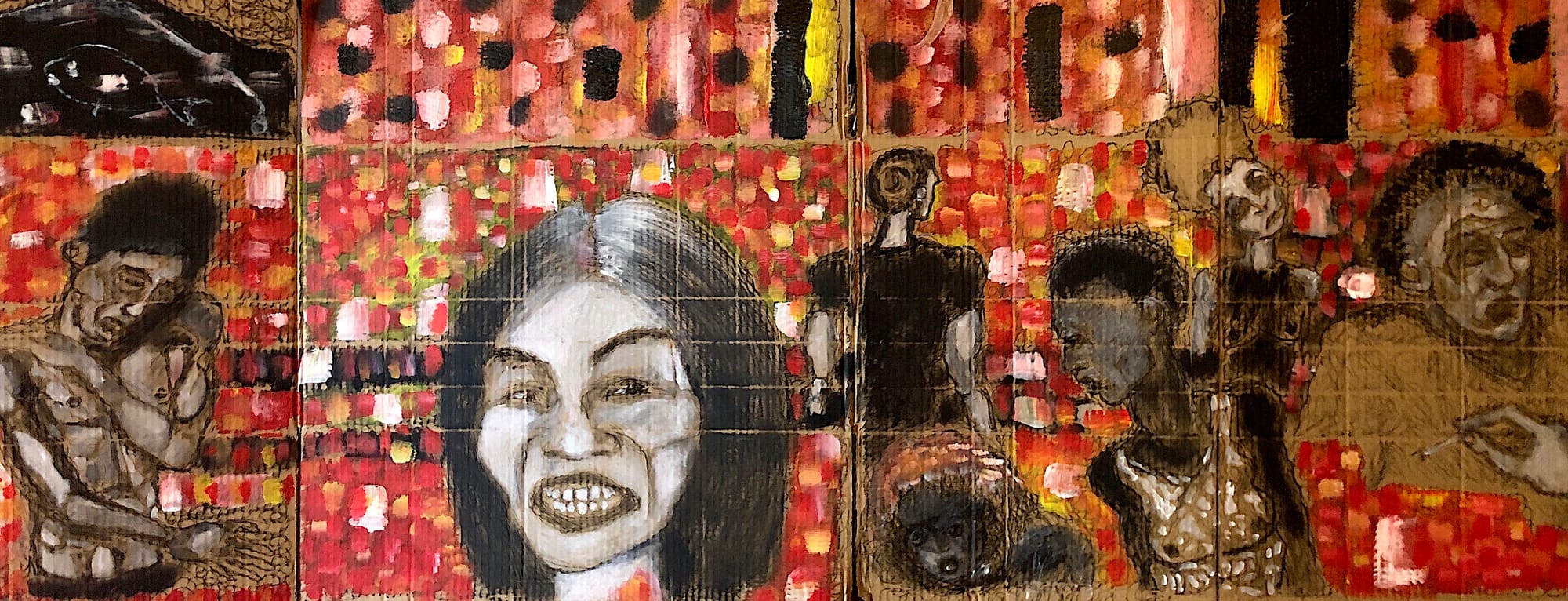
Interview by Richard Marshall

'I think reverence begins positively, with a feeling of awe for something greater than ourselves. For Thoreau to object of awe was nature, and something rather like that for Marcus Aurelius’ Stoicism—the principle of reason that he believed animated nature. I think our culture has largely lost touch with nature.'
'Leadership is influencing people to do things when they are free not to do them. Teaching is a kind of leadership. As a teacher, I can force students to take a test by offering carrots and threatening them with sticks, but by force alone I cannot make them love my subject or genuinely want to learn. Leaders know that the humanity of their followers sets limits on their powers.'
'Democracy must treat all citizens as equal in power and equal under the law. Most modern democracy puts politicians in power who represent special interests, rather than representing the people.'
'Tolerate education? You should crave it. You need to have a curious mind and want to know how human beings function, whether together or apart. Alexander the Great studied with Aristotle. Washington and Lincoln read books on their own. Rosa Parks finished her formal education but learned most of what she knew from the school of life.'
Paul B Woodruff is interested in Ethics, ancient philosophy, ancient Greek tragedy, aesthetics, philosophy and literature. Here he discusses reverence, reverence in ancient Greece, India and China, reverence as a virtue, reverence in teaching and leadership, reverence and art, reverence as a habit of the heart, theatre and emotions, the democratic ideal, empathy, ancient Greeks and the emotions rather than reason, leadership and why it should be taught, the relationship of leaders with education, why leaders should be able to deal with evil and complexity, putting on a show, the role of the humanities, the role of communication, philanthropy and the ethics of giving, effective altruism, whether all charitable giving is altruism and obligations under justice. On the day Jo Biden becomes President philosopher Paul Woodruff reminds us of things Trump wants us to forget.
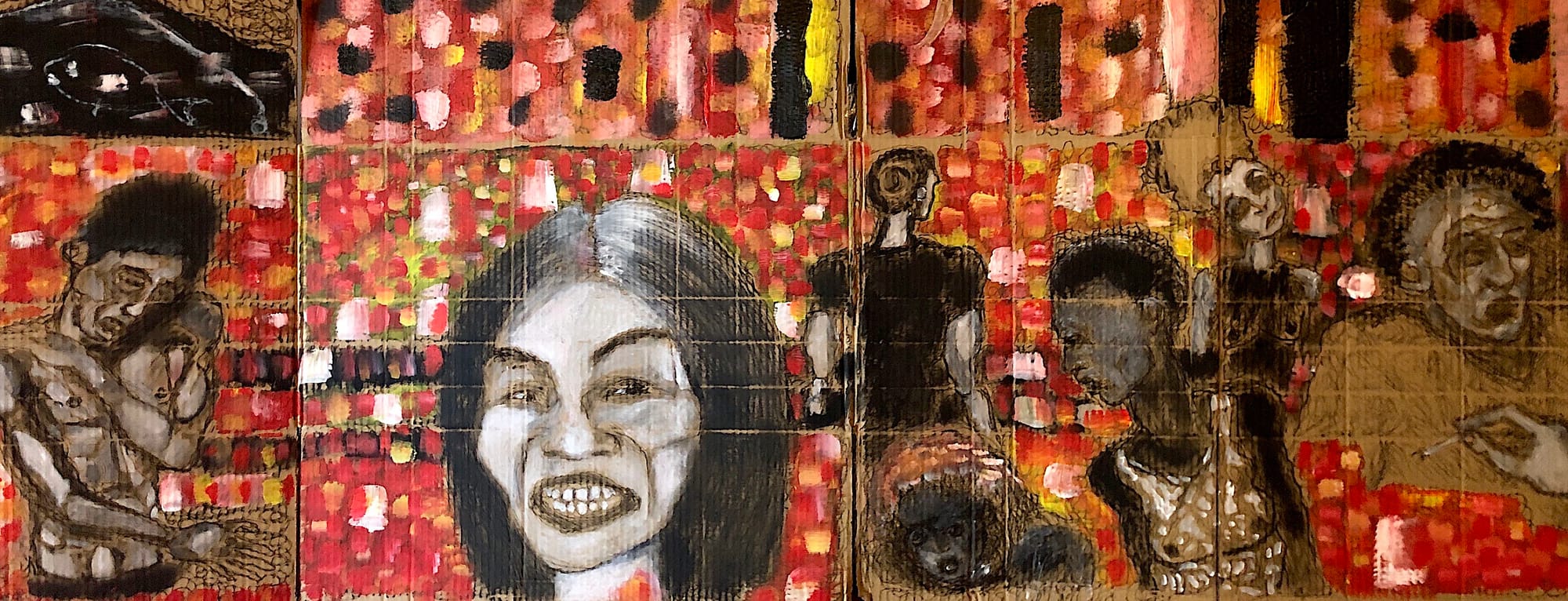
3:16: What made you become a philosopher?
PW: I could not help it. I was hooked by two books, Thoreau’s Walden and the Meditations of Marcus Aurelius. I found the first among my mother’s books. My father showed me the Meditations after I expressed my disappointment with the only book of philosophy in my high school library—something by a man named Kant about Pure Reason. I could not understand a word of it. But I loved Marcus from the first page. And I loved debating philosophical issues with the few friends I had in high school who were good enough friends to bear with me on this.
I had thought of a career as a writer of plays, and made a start at that, but once I found how much I loved teaching philosophy I knew where I was headed.
3:16: You draw much of your philosophical work from the study of Ancient Greeks. But let’s start with the idea of reverence where you draw ideas from the ancient Greeks but also ancient China as well. Nietzsche is another source as well. So firstly, how should we understand reverence? You say that a definition isn’t easy, so perhaps we can begin by asking you to tell us how the feeling of reverence comes from an understanding of human limitations. Do you think we have lost a sense of our limitations, and this explains why we don’t talk about reverence anymore, or is it because it strikes the modern person as being linked with a religious culture they don’t share?
Paul B Woodruff: I think reverence begins positively, with a feeling of awe for something greater than ourselves. For Thoreau to object of awe was nature, and something rather like that for Marcus Aurelius’ Stoicism—the principle of reason that he believed animated nature. I think our culture has largely lost touch with nature. I grew up roaming woods and fields alone, as a free-range child. How many people can do that now? Also, I think our culture encourages us to think that human beings can do anything, cope with any problem, master nature. That’s wrong, of course. To make matters worse, we have elevated false gods, especially in this country—the flag, the Constitution, patriotism. These are flawed human products and do not deserve our rituals or our reverence.
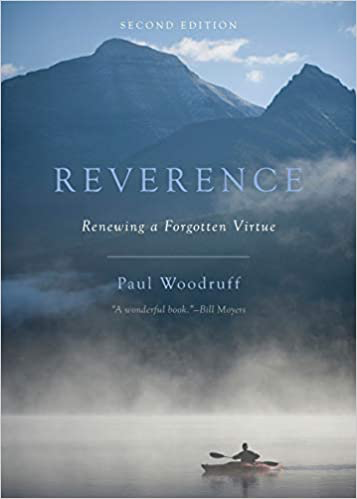
3:16: Chinese and Greek cultures never made contact did they, so do they approach reverence in the same way as each other? India made contact with both – did they mediate any cross fertilization of the idea at all?
PW: Alexander’s army brought ideas from India to Greece, and I suspect there was already cultural influence flowing both ways. Buddhism came to China, after originating in India, much later, after Chinese philosophy was well developed. The reverence I find in Chinese thought is present in the Analectsof Confucius and also in the works of Mencius, neither of whom was touched by Greek or Indian thinking so far as I can tell. Reverence is universal because of the universality of the human need from which it arises. To live together we need communities, for communities we need leaders, and true leaders must be reverent. People in authority cannot sustain communities if they lack reverence. In the U.S. we have had reverent leaders at crucial times.
3:16: How do you see reverence as being relevant in our contemporary world? Is it a mode of virtue ethics, the kind of thing Anscombe and Hobshouse developed out of Aristotle?
PW: Yes, I think of reverence as a virtue. I am grateful to Anscombe for bringing philosophers back to the concept of virtue. Aristotle’s work deserves its prominence in virtue ethics, but I am trying to carry us back to Socrates’ concept of virtue. At the center of that is self-knowledge, which leads to the virtue of human wisdom—realizing that your wisdom is not worth much. (I don’t know Hobshouse’s work.)
3:16: What kinds of thing can we properly have reverence for, and which can’t we? For example, you say that many of the awesome things of nature, like Giant Redwoods, are nevertheless not quite enough for this feeling?
PW: I think we can feel awe in contemplating Redwoods—but also in thinking of the power of a mosquito, or the intricate structure of any living cell.
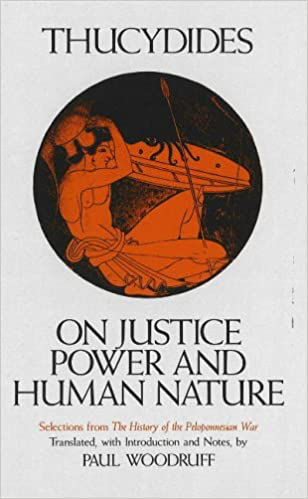
3:16: How is this relevant for the quality of character in teaching and leadership?
PW: Leadership is influencing people to do things when they are free not to do them. Teaching is a kind of leadership. As a teacher, I can force students to take a test by offering carrots and threatening them with sticks, but by force alone I cannot make them love my subject or genuinely want to learn. Leaders know that the humanity of their followers sets limits on their powers. Machiavelli wrote that a prince can force his followers to fear him, but not to love him. He was wrong on the first count. You cannot force emotions on anyone; brave subjects do not fear tyrants. Buddhist or Christian subjects may not even hate their tyrants. Tyrants often fall because they do not know their limits.
Knowing your limits is part of reverence, after all. Reverent leaders share values with their followers, and they share reverence for the ideals behind those values.
3:16: How does Nietzsche discuss reverence? Is this where its link to art is salient?
PW: Yes, I think art and reverence are connected. So are reverence and laughter. If you are reverent you know how to laugh at the absurd, and at any human attempts at false grandeur.
3:16: Reverence is a feeling and of course you’ve studied more than just this feeling in ancient philosophical contexts. In your work on sharing emotions through theatre you discuss the importance of compassion. Can you say something about this and why the Greeks thought that we had to understand the situation of others if we were to respond emotionally to them?
PW: Reverence, as a virtue, is not so much a feeling as a developed capacity for feeling, a habit of the heart. The Greek gods, in myth, were mostly incapable of compassion because they could not imagine their own suffering. Jesus and Mary, in the Christian tradition, and Kwan Yin in the Buddhist tradition, all had opportunities to experience human suffering, and that is why I think they have been taken as divine beings who are compassionate. The Greek word I translate as compassion is literally “with-knowledge”; in Modern Greek the same root is used to say “I’m sorry.”
You may feel pity for anyone who suffers, whatever your experiences have been. But full compassion requires understanding. That’s why veterans need to talk to other veterans. Pity from non-veterans does not help us, because we know they do not understand what we have done or experienced. (I write as a veteran of a combat zone.)
Reading and listening can make up for lack of experience. Had the Greek gods read the Iliadthey might have been more compassionate. But listening to veterans will not help if the veterans feel (as many of us do) that we cannot tell you the truth. If we do, we feel that you will hate us and never speak to us again.
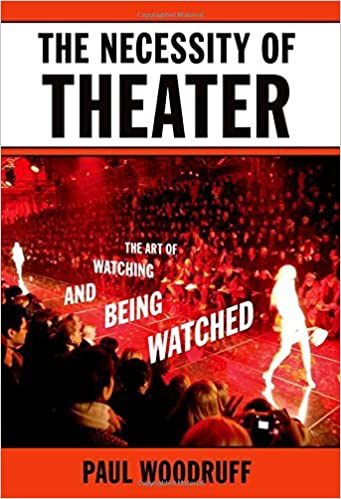
3:16: Theatre is no longer a staple diet of most people’s life but digital entertainments are increasingly. Do we lose the ability to share emotions in digital communications? What criteria would digital communication have to satisfy to serve the same functions of theatre? How do we light up the lizard brain?
PW: Eye-contact lights up the lizard brain. Pictures of eyes may do the same.
Theater is witnessing (among other things). Can you serve as witness for an event you saw only on a screen?
Digital communication may eventually replace live theater, when it passes certain tests. Theater as I define it remains central to our lives. Ask yourself this: Would you be satisfied participating in your daughter’s wedding by digital means? If, during your son’s big soccer game, you could cheer him on by digital means, and he could hear your cheers, would that satisfy both of you? When digital communication becomes mature, you will answer both questions with a yes.
3:16: You say theatre can’t teach us transcendent truths but can teach us a kind of wisdom about ourselves. Can you say what you mean by this, and why you think theatre is so different from the other arts and as necessary and powerful as language itself?
PW: The art of theater employs the other arts. It supplies our needs to watch each other and be watched. You can complete the other arts without an audience, but not theater. You can write, paint, sculpt, and so on, in a human vacuum. But you cannot perform a play, a ballet, a symphony, or even a football game without witnesses. Even a rehearsal has witnesses.
As for wisdom, I think the only human wisdom is about ourselves, about our humanity in general as well as about our individual strengths and weaknesses. I don’t think anything can teach us transcendental truths; in fact I don’t think anything worthwhile can be taught. In an inspired classroom learning is going on, but not teaching. Like Socrates, I try not to see myself as a teacher, but my students as learners.
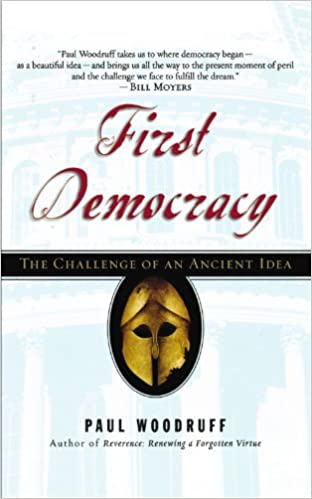
3:16: Another critical idea for contemporary culture is the idea of democracy. Compared to the ancient Greek ideal, contemporary democracy seems to have lost touch with this ‘first democracy’. Can you say what you think the first democratic ideal involved?
PW: That’s the subject of one of my books. The short answer is that democracy must treat all citizens as equal in power and equal under the law. Most modern democracy puts politicians in power who represent special interests, rather than representing the people. First democracy used a lottery to put common people in power without the expense of elections, which tended to serve the rich—as they still do. Winner-take-all elections are antidemocratic. We need proportional representation.
3:16: You think that a true democracy must be mature enough to accept change that comes from the people and it must be willing to pay the price of education for thoughtful citizenship. Can you explain these two features, especially the second one. It seems especially salient at a time when universities and school education for all are under immense pressure at the moment. Who are the Greeks who developed this idea?
PW: Most ancient Greek writers were not sympathetic to democracy. But the playwrights often celebrated democratic values, and they provided education in citizenship for Athens. Every male citizen, as a youth, probably served in a chorus for a play or a ritual, and they learned and even practiced values in doing that. As adults, they attended the theater. We know that, aside from the aristocracy, the ancient Athenians were passionate supporters of their democracy.
What can we do now to educate our citizens better for democracy? That is a hard question to answer. Our current political divisions seem to make such education impossible. But we have to try to overcome partisan wrangling in favor of education in fundamental democratic values.

3:16: There have been some recent accounts of empathy that denigrate it. How would you push back against those who don’t see empathy as a positive virtue?
PW: “Empathy” can mean many things. The word was coined for use in aesthetics. I try to distinguish its more recent meanings. The playwright Bertolt Brecht despised the kind of theater that leaves people wallowing in thoughtless emotion, which he called empathy. And that’s the sort of empathy that Paul Bloom has been attacking recently. The empathy I defend, which is a precondition for compassion, is now called cognitive empathy. The virtue to seek is not empathy but the capacity for the best kind of empathy, which is cognitive.
3:16: A common view about the ancient Greeks is that they were culture that valued reasons and rationality. Yet in much of your work it is the refining of emotions and feelings that is important. How should we think about the ancient Greeks and their approach to philosophy generally? Is what they were doing very different from how much contemporary philosophy is being done, and if so, do you think we are missing something valuable in not following the ancient philosophical approaches?
PW: E.R. Dodds published a book in 1951 called The Greeks and the Irrational. That changed the way we do classical scholarship, although the seed of his idea was planted by Nietzsche, who understood that the ancient Greeks needed to emphasize reason because they knew how vulnerable they were to emotions they could not control. They needed Apollo because they were so open to Dionysus (The Birth of Traghedy).
Ancient Greek plays were, as Anne Carson wrote, grief lessons. Plato’s philosophy gives a powerful place to emotions in the Republic: In the ideal state, the emotional component of each citizen must be a willing participant in the whole. In the Phaedrus, Plato seems to be saying that one must lose one’s reason in order to regain a higher wisdom through the madness of love.
So, yes, they were very different from contemporary philosophers. Rawls’ great theory of justice gives little space for emotions. Indeed, most recent constructivist ethics depends heavily on notions of rationality. That’s why I think recent ethics is on the wrong track. It talks too much about reason and reasons.
3:16: You have written about leadership and the need for universities to teach it. So first can you sketch for us what leadership is for you and what things you don’t think counts as leadership that others might think do?
PW: As a tyrant, you can force people to do what you want—up to a point. But you can't force them to be loyal to you or to be creative or inventive. As a manager, you can give people incentives to do what you want, but the results will be limited to what you know you want. As a leader, you can inspire people to pursue a vision they share with you, and for that they will be loyal and innovative. Leadership is the ability to influence people without using force or authority. The lowest ranking member of a team can show leadership by speaking up at the right moment.
3:16: Why is it important that leaders must tolerate education, and do leaders who are messianic or natural – people like Joan of Arc and Billy Budd – make bad leaders because they don’t? Must these always fail?
PW: Tolerate education? You should crave it. You need to have a curious mind and want to know how human beings function, whether together or apart. Alexander the Great studied with Aristotle. Washington and Lincoln read books on their own. Rosa Parks finished her formal education but learned most of what she knew from the school of life. You don’t need to go to school to be educated, but you do need to know something about the human condition in order to be an effective leader over the long haul. Otherwise you won't know how to deal with the evils that you will have to face.
I admire Joan of Arc, but she did not see that the France she saved would sacrifice her to the English for the sake of peace. Billy Budd is as good as Adam before the fall, but he is hopeless on a ship of war seething with conflicts.
3:16: Why is being able to deal with evil and complexity so important for the leader – and why are guile, courage and compassion things of great value to your leader – how would you characterize these three requirements?
PW: Compassion first. If you face your own shortcomings honestly, you should be more compassionate toward the failings of others. Also, as a leader, you need to know how easily groups slide into brutal behavior toward outsiders If you head a fraternity, you need to know how sour hazing can turn and how quickly, and you need to prevent it. . If you are going to run a prison (such as Abu Ghraib), you need to know how cruel guards tend to be, and it is up to you to counteract this tendency. Compassion is a leadership responsibility.
Complexity next. Most leaders will face what I call leadership dilemmas. That happens when your obligations to your followers come in conflict with your obligations to others, or with your general ethical duties. Machiavelli thought that because your followers trust you to look after them, you should always be willing to lie, or break promises with outsiders. For the opposite kind of view, some ethicists think that business leaders, in order to be ethical must always put the interests of society ahead of the interests of their stockholders. There’s merit to both perspectives, so long as you take away the “always” in each case. These dilemmas are hard because human life is complex, and because leaders have complex obligations.
Courage is the most important virtue of leaders. Leaders must model courage for their followers, and they must have the courage to stand up for their followers against enemies both foreign and domestic. A marine general showed great courage in standing up to the US president over the misuse of his troops. He lost a promotion, but he put his troops first. Next, a leader needs the courage to stand down when it’s time, as Washington did after his second term in office.
Guile may seem like an odd quality for a leader. But it’s essential. During World War II, Paris was saved by the guile of three leaders. Hitler ordered his generals to lay waste the city and its monuments. The allied command generally thought it was a waste of valuable time to liberate Paris. And FDR detested De Gaulle. But the German commanders (von Choltitz and others) lied to Hitler, Eisenhower cleverly did an end run around the objections, writing guileful reports to FDR, and De Gaulle managed to prevent civil war by treating the communists in Paris as if they had a future. (I learned this recently from Jean Edward Smith, The Liberation of Paris (New York: Simon and Schuster, 2019)—a wonderful book that I would have cited had it come out earlier. The author wrote it on his death bed.)
3:16: You think leaders must be able to put up a show of qualities even when they don’t have them. Isn’t this just hypocritical? How can fooling people and empty rhetorical flourishes be good?
PW: Effective leaders have always performed leadership. Alexander the Great was a magnificent actor. Fooling people is not good, and neither are empty rhetorical flourishes. But Washington’s gesture with his spectacles at Newburgh was not an empty flourish. It truly represented his dedication to the cause of freedom and his repulsion at the thought of military rule. Hypocrisy, as displayed by Tartuffe and other famous operators, is pretending to have values that you do not live by. Washington had to restrain his temper with difficulty in order to be an effective leader, but he totally believed in the ideal he was trying so hard to represent. He did live as best he could by the ideals he projected; he refused total power on several occasions. True, he kept some of his weaknesses hidden from all but his closest friends. But how much weakness must leaders have to expose to their followers? That’s a hard question that I leave for my readers.
3:16: You think the humanities in particular have a big role to play in education for leadership. Can you sketch for us what makes the humanities particularly useful?
PW: The most important skill for a leader is communication. Lincoln learned the art of speaking by memorizing great speeches, and he was the most inspiring speaker in our history. Writing and speaking skills, along with listening skills, belong to the humanities.
Going beyond skill, the most important subject to know is how human beings tend to respond to changing situations. History and wisely written fiction can help you learn this. Of course, you don't need to go to school or read books; you can learn this by long experience paying attention to the people around you. But that takes years and years. Better read some history. That’s in the humanities.
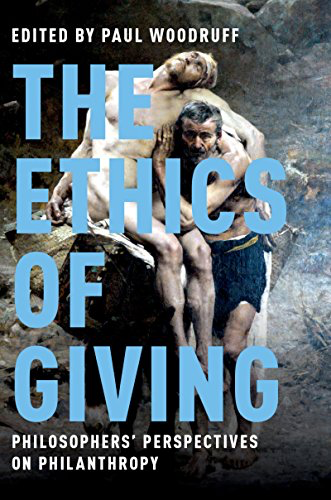
3:16: You’ve also just edited a book on philanthropy and the ethics of giving. Can you sketch for us what you think the key issues are for the ethics of giving – what are the key questions from your perspective?
PW: The main issues we address in the book have to do with how we should direct our charitable giving. Some philosophers argue that we should make every dollar we give do the most good, and some even argue that it is wrong to give to causes that don’t do very much good, such as museums. This is controversial, to say the least! Another factor is justice. Are there causes to which we should give, such as the local foodbank, so as not to be freeloaders? I have argued that there are.
3:16: Effective altruism has been under fire recently for asking too much – it seems to require everyone to become moral saints and this is thought to show that something has gone wrong in its arguments. How do you understand effective altruism, and do you think it is inevitably flawed as an approach to giving?
PW: Effective altruists argue in our book that their policy is not too demanding, and they make a good case. Their arguments are based on act-utilitarianism, however, a theory I do not share. They try to limit the demands of effective altruism on philanthropists, but their theories do not seem to fit their proposals clearly. Their theory always demands that you do the most good that you can. I disagree. If you find a wallet full of large bills, you should return it to its owner, rather than do the most good by using the funds to fight malaria. That said, I think I do think we should consider the effectiveness of charities to which we give, and we should do the most good we can consonant with our other obligations. I argue that we ought to give to some local charities even though they are less efficient than those that operate in the third world (to which, by the way, we owe a large debt). I try to give effectively, but I also give locally so as not to be a freeloader.
3:16: You say that not all charitable giving is philanthropic. This seems counter-intuitive on first glance. Why do you think this?
PW: This is an idea I gleaned from Kant. Philanthropic giving is a wide or imperfect duty, which means you have a lot of latitude in how you give. But some of us have narrow, perfect duties of giving as well. Kant argued that great wealth represents injustice, so that the very rich have a narrow duty to give back to the society they have, in effect, robbed. So giving by the very rich is not philanthropic but a matter of justice. It's a fine point but an important one.
3:16: So what giving obligations do we have under justice – and what don’t we have despite many people thinking we do?
PW: I argue that, under justice, we all have duties to support whatever safety nets that are there for us, whether we fall into them or not. This matters more in the USA, where many safety nets depend on private charity, than it does in Europe where taxpayers take care of the basic safety nets. I also argue that you ought to support institutions from which you actively reap advantages, such as museums you visit and concerts you attend—if, that is, you have the means to do so.
3:16: And for the readers here at 3:16, are there five books, other than your own, which you can recommend that will take us further into your philosophical world?
PW: Three accessible classics and two recent books, not by philosophers:

In Memoriam. Book length poem by Alfred, Lord Tennyson.His masterpiece, an extended expression of reverence in the face of the loss of his best friend. Many editions.

Thoreau’s Animals. Edited by Wisner (Yale, 2017). Selections from Thoreau’s journals, arranged by the calendar, that show the depth of his feeling of awe for the natural world.
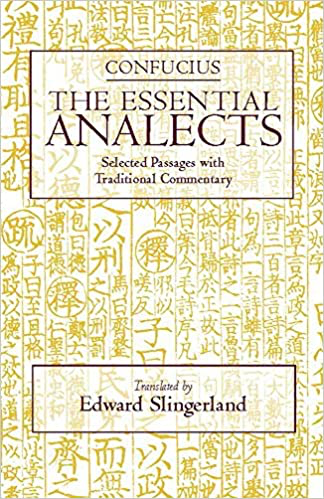
Confucius (2003). Analects. Trans. by Edward Slingerland. Indianapolis: Hackett Publishing Company, Inc.
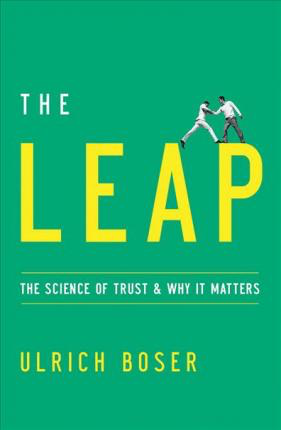
Leap: The Science of Trust and Why It Matters. By Ulrich Boser. Boston: New Harvest, 2014. Applications of ethics in the real world.
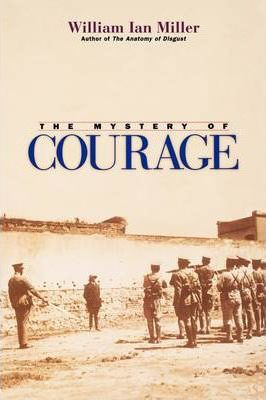
The Mystery of Courage. William Ian Miller. Cambridge, MA.: Harvard University Press, 2002. More real-world ethics.

ABOUT THE INTERVIEWER
Richard Marshall is biding his time.
Buy his second book here or his first book here to keep him biding!
End Times Series: the index of interviewees
End Time series: the themes
Huw Price's Flickering Shadows series.
NEW: Steven DeLay's Finding meaning series